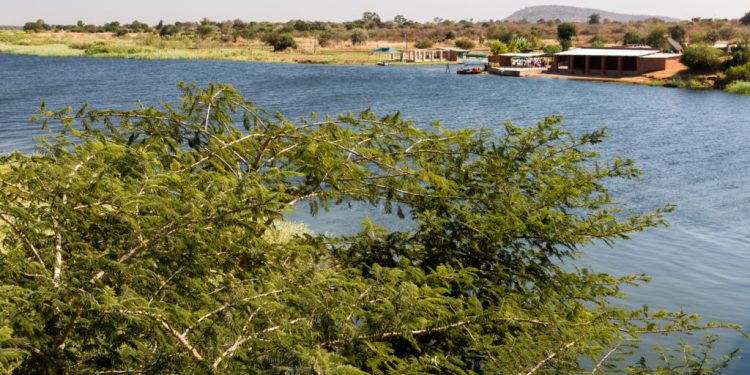Chinese Firm Faces $420 Million Zambia Mine Spill Damages Claims
People affected by a large-scale toxic spill at a Zambian mine in February are demanding $420 million in compensation from the Chinese state-owned company that operates the site.
Two separate groups sent letters of demand to Sino Metals Leach Zambia Ltd. in recent days, according to documents seen by Bloomberg and confirmed by the legal firms that issued them.
The claims follow reports that the spill of highly acidic mine waste laden with toxic heavy metals may have been worse than initially thought, and rank among the worst such disasters globally. The incident prompted statements by the US and Chinese governments, and highlights the risks the world faces in meeting surging demand for critical minerals.
One letter from Malisa & Partners Legal Practitioners demanded the immediate payment of $220 million in interim compensation to facilitate the relocation of 47 households that are part of the Kalusale community and are living in the direct vicinity of the spill. The amount would also cover their screening, independent medical testing, treatment and livelihood restoration, according to the document.
The other from Malambo & Co. says the firm represents “several residents of Kalusale” and other interested Zambians. The lawyers demanded an immediate payment of $200 million to set up an emergency fund for their clients.
A Sino Metals spokesman said the company had received the letters, which were with its legal department. He declined to comment further.
China’s Foreign Ministry said last month that the company had “actively shouldered responsibility and pro-actively cooperated with the Zambian government” to compensate those affected by the spill. The Zambian government also “spoke highly of the work done by the Chinese company” at an Aug. 7 media briefing, it said.
Impact assessment
As much as 1.5 million tons of waste were spilled in the disaster, according to Drizit Environmental (Pty) Ltd., the company that Sino Metals hired to undertake an environmental impact assessment. Sino Metals fired Drizit for alleged breach of contract, and later questioned the methodology used to assess the magnitude of the spill.
About 900,000 cubic meters (238 million gallons) of toxic tailings remain present in the environment, Drizit said in a statement last week.
“These materials were found to contain dangerous levels of cyanide, arsenic, copper, zinc, lead, chromium, cadmium and other pollutants posing significant long-term health risks, including organ damage, birth defects and cancer,” it said.
Various embassies have warned their citizens to avoid the area because of the health risks.
Zambia’s government initially tried to downplay the threat, but later said it found dangerous levels of heavy metals in some water samples. It didn’t immediately respond to a request for comment on the latest developments.








